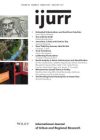This article analyses the disjointed, incomplete and often malfunctioning techno‐natural networks that make up the Sicilian hydraulic system and the social power relations associated with them, which shape access to and distribution of water in Sicily. We focus on how the perceived, and occasionally real, water scarcity on the island may be understood as a socio‐environmental or techno‐natural problem deriving from a combination of ecological, political and socio‐economic factors. First, we show how a particular set of socio‐environmental relations and entanglements has characterized this region since the unification of Italy in the mid‐nineteenth century. These relations have proven to be extremely resilient over time because of their ability to adapt to changing political and economic contexts. We examine those relations and entanglements through considering the techno‐natural water infrastructures on the island and how they express particular political and social power configurations. Our main empirical focus is on the Sicilian water crisis of summer 2002, which was a particularly revelatory moment as far as the socio‐natural power relations involved in access to water were concerned. The prolonged interruptions of water supply between May and September 2002 created considerable urban social unrest and brought the water issue to the centre of an extremely polarized and intense public debate. We show that the imbalance of power between the different actors in the public debate was skewed towards the ‘traditional’, centre‐right political elites and power brokers who had key institutional roles at the time of the crisis — and who were thus responsible for its management. More importantly, this ruling group also proved extremely skilful in presenting their age‐old solutions to the crisis, mainly based on the construction of additional hydraulic infrastructure, in the context of a national structural reform of the water sector which, at least nominally, should have challenged the status quo. We conclude that the 2002 crisis produced little change in the articulation of social relations around water and, furthermore, that it provided yet another example of how Sicily’s hegemonic powers base their survival on their continuing ability to adapt their discourse and practice to the changing contexts in which they operate.
Details
Written by:
ILARIA GIGLIOLI, ERIK SWYNGEDOUW
Digital Object Identifier (DOI)
10.1111/j.1468-2427.2008.00789.x
About DOI
Read full article as PDF
Read full article as HTML
See the references for this article
